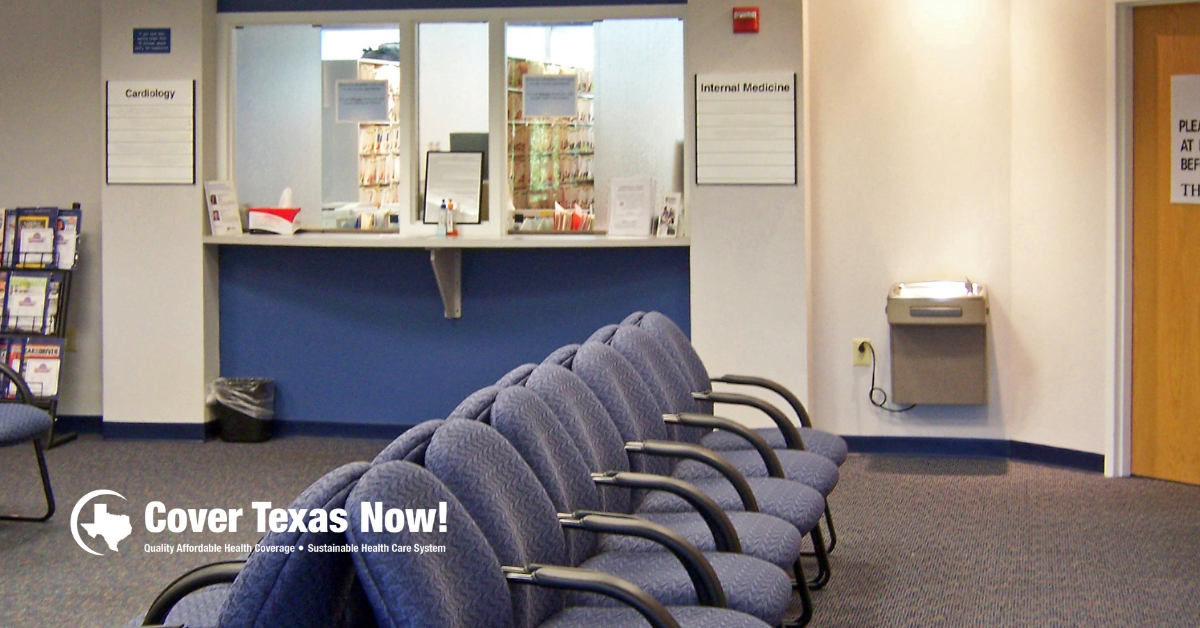Texas Hospitals Closing & Patients Suffering as Legislature Rejects Federal Funds
In recent weeks we’ve seen numerous reports of Texas hospitals closing down or cutting back, largely because state leaders have not accepted the new Medicaid funding.
Along with expanding access to insurance for cooks, daycare teachers, and other low-wage workers who don’t get coverage from their employers, the Medicaid funding that the Legislature has rejected is also intended to replace the phased-out federal funding for unpaid hospital bills.
Nationally, states that accepted the funding report a decline in this “uncompensated care” that hospitals — and local property taxpayers — are stuck with when uninsured patients inevitably can’t pay their medical bills.
The Texas Tribune recently explained where things stand in Texas:
The idea was that hospitals would take cuts to their Medicare payments, but in return they would have to spend less on “charity care” because most patients would have health insurance.
But because Texas' Republican leadership has vehemently opposed expanding Medicaid to low-income adults, hospitals say they are paying the price for cost savings they didn't receive.
That Tribune article noted that 10 Texas hospitals closed in the last two years.
An article in the Quorum Report last month further explained the impact of the Legislature’s decision:
Rural hospitals are closing at such an alarming rate in Texas that hospital administrators are beginning to fear wide swaths of the state may be left without the benefit of trauma care and some areas may have no hospital within 100 miles.
The article went on to highlight the sometimes tragic consequences:
Edith Gonzalez died in late 2013. The toddler choked on a grape, but when her family rushed her to Shelby Regional Medical Center in Center, the doors were locked and the parking lot was empty. Endres says that trend won’t be reversed. Without access to medical care, some outcomes can be predicted.
The Lubbock Avalanche-Journal reports that five percent of the state’s hospitals have shuttered in the last two years, primarily in east Texas.
In the town of Graham, the Graham Regional Medical Center (GRMC) recently terminated 15 employees. A GRMC official explained to the local paper:
“A lot more people would have been eligible for Medicaid (had Texas accepted the expansion), and the government was paying 100 percent of that Medicaid, certainly for the next several years,” Kovar said. “And that would have brought in more money to the hospital, obviously.”
The impact isn’t limited to rural areas. Harris Health, the Houston-area safety net hospital district, cut over 254 staff positions and made other cuts earlier this year largely because of the financial bind the Legislature put them in.
A Ben Taub Hospital official explained the impact in the Houston Chronicle:
Now, a budgetary shortfall threatens both trauma care and medical education at Ben Taub Hospital, which would be a tremendous blow to Harris County and emergency patients. As a consequence, Memorial Hermann and other hospitals in our region would face an overwhelming surge of patients who cannot be treated at Ben Taub.
The potential economic and health benefits to each Texas county under Medicaid expansion or an alternative private-market based solution are available here.
With hospitals closing and cutting back medical services, and thousands of jobs at stake, it’s easy to see why business leaders, doctors, and other Texans are calling on state leaders to accept the new Medicaid funding to close the Coverage Gap.

